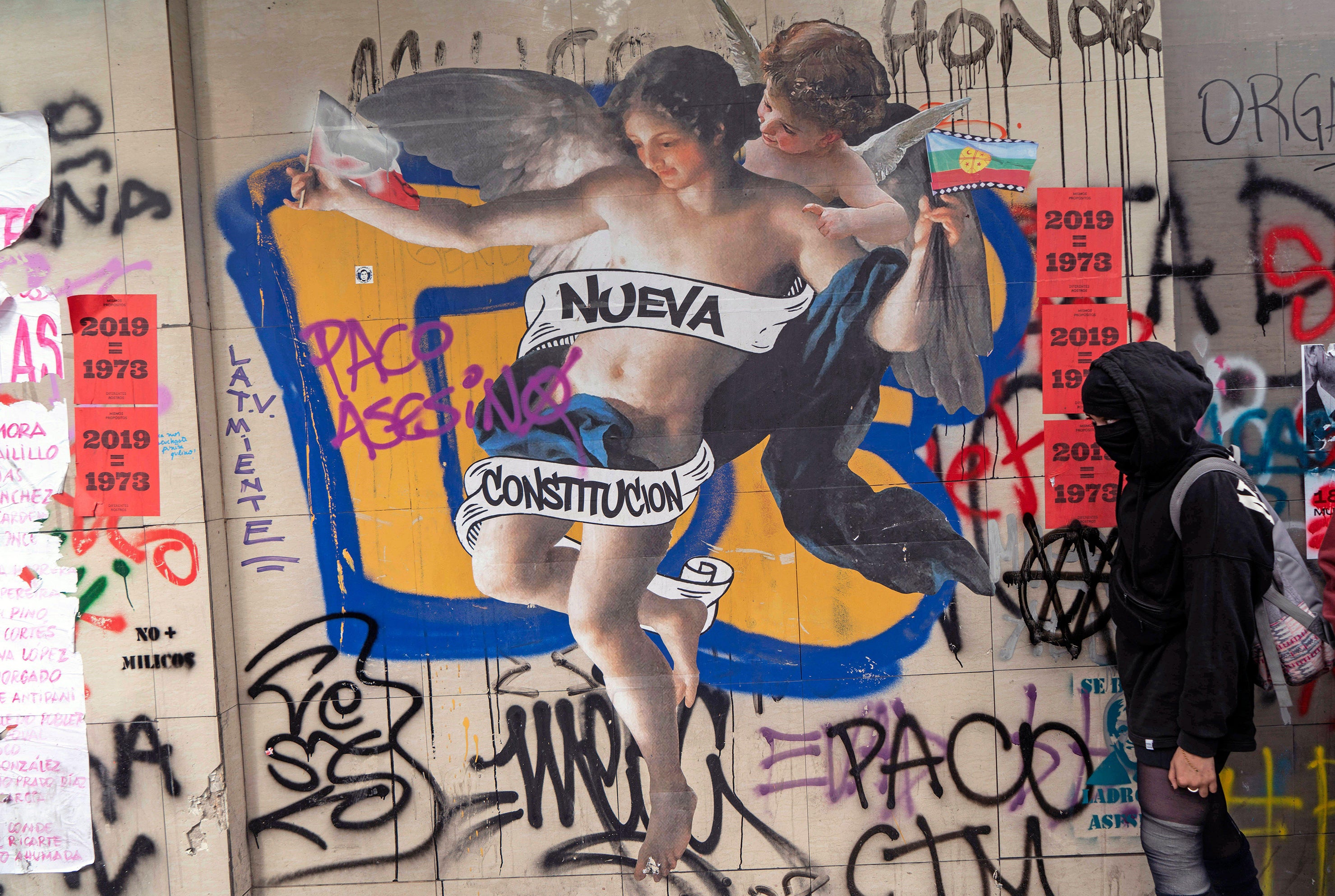There is a historical experiment going on in Chile that could answer a question that has become relevant for our times: do most of our problems stem from not listening to women?
The lack of women in all kinds of leadership positions, not simply in politics, is a concern. It can create problems when matters that affect us all are looked at from the perspective and experience of only half of the population. Around the world, both the private and public sectors have tried to address this issue with varying degrees of success. Iceland, Cuba, Bolivia, the UAE and Rwanda all have a significant female presence in government. In Costa Rica, gender parity legislation came into effect for the 2014 elections. Yet in the UK, according to this article in The Guardian, only eight of the top 100 companies have a woman at the helm.
In Chile though, the Constitutional Convention that is rewriting the country’s constitution took a different path that has led to almost perfect gender parity: 77 out of their 155 members are female. This means that the South American nation will soon have the first constitution equally written by men and women.
“Quotas are meant to change electoral behaviours gradually, they’re like a muscle you have to exercise”, says María Cristina Escudero, a researcher at the Public Affairs Institute of the University of Chile. “A Constitutional Assembly needs to act fast, we didn’t have time for that.”
Gender parity was accomplished by following a “zebra pattern”. Candidate lists presented by parties would have a woman at the top – to emphasise the need to give women a voice - followed by a man in second position, then a woman, and so on, emulating zebra stripes. If more men were elected, those with fewer votes would be removed and replaced by women from the same party with the next higher number of votes. If the opposite happened, the same process would be applied. This would ensure that the Convention had a 50:50 gender composition.
The move has received an enthusiastic welcome from Chileans. Two years ago, thousands of people took the streets in uproar. Their concerns were never fully dealt with—the protest was merely paused by the pandemic. Now that desire for change is being addressed with a new constitution. It will replace that inherited from a dictatorship while including enough voices of women and indigenous populations to tip the balance.
One of those voices is Elisa Loncón’s. She’s a 58-year-old university teacher who features in this year’s Time magazine's list of the 100 most influential people. She was elected president of the Constitutional Convention in July and embodies the spirit of an inclusive and modernised Chile. Her appointment is groundbreaking, identifying Chile as a place where a woman from a long-neglected indigenous community, the Mapuche, gets to lead the organism that will set a new course for the country’s history. Loncón dedicated her inauguration speech to “the women who walked against all domination systems” and emphasised that Chile would be refounded by “all” and not by just a particular sector of society.
Daniela Campos, a member of Red de Politólogas (Women Political Scientists’ Network), defines those “domination systems” with a long list of inequalities across various fields: “In Chile, we are 67 years away from closing the gender gap [in women’s presence] in the media, 84.4% of board seats in companies are held by men… This means women have been made invisible in the areas where decisions are discussed and made”, she says.
A report by Nuestra Voz (Our Voice), a digital platform that gathers data about public opinion, concludes that if there is a prevailing emotion that the new constituent process inspires women, then that signifies hope. However, mistrust and uncertainty are also recurrent sentiments among the most vulnerable segments of the female population surveyed.
“The Convention has opened the door to new spaces and speeches that used to be homogeneous… But outside of the Conventional Constitution, gender parity doesn’t exist in Chile”, says Campos. The South American nation ranks 70th out of 153 in the 2021 Global Gender Gap Report published by the World Economic Forum last March. Chile slipped 13 places down the rankings in just two years, making it the 8th worst in Latin America. According to the report, the participation of women in the economy and their access to opportunities are the areas where the country performs the worst. Perhaps this explains the scepticism perceived among the most vulnerable. Educational attainment is also a matter of concern.
Political empowerment seems to be a less urgent issue. However, it too has suffered a setback: 10 places down in comparison to the previous ranking. In the Parliament of Chile, only 35 out of 155 MPs are women. That ratio, equating to less than 23%, is low even for Latin America. As a consequence, discussions about a law to allow the termination of pregnancies before the 14th week are taking place in male-dominated environments. It’s in situations such as these that women’s voices need to be heard. “When the Convention was announced, Chile was all over the news and I am proud of that and I still hope it will be the first step to achieve gender parity in our country. However, we’ll have elections in November and they won’t include gender equality”, says Campos. Like her, many Chilean women still have faith that the Convention will bring change and make gender parity the norm in the new country they are rebuilding.
But uncertainty still looms over their hopes. In many respects, there’s no zebra on the horizon just yet.

